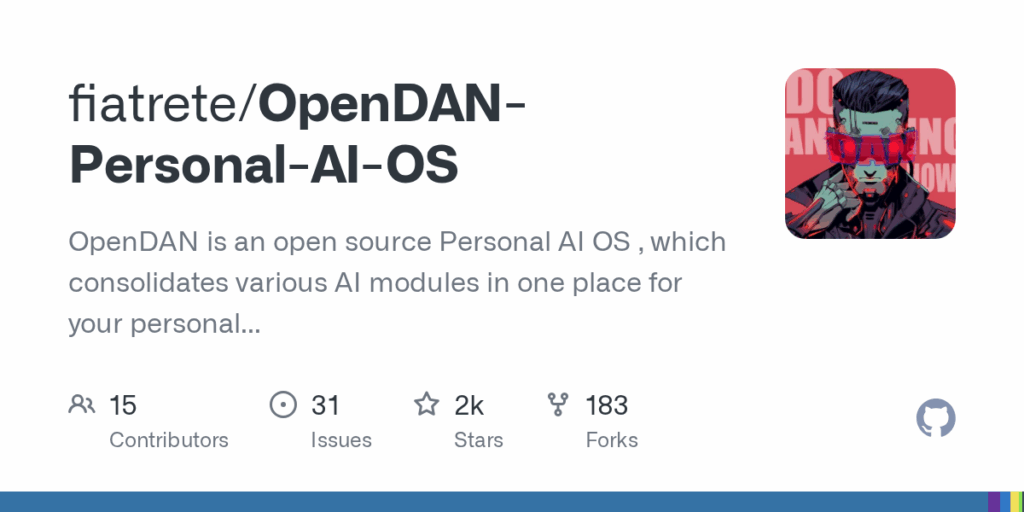OpenDAN Personal AI OS
Basic Information
OpenDAN is an open source Personal AI Operating System designed to consolidate diverse AI modules into a single local platform for personal use. It lets users create and run AI Agents and multi-agent Workflows such as personal assistants, tutors, and content-generation teams while retaining local control and privacy. The project includes built-in agents (Jarvis, Mia, Tracy, ai_bash), a personal knowledge base fed by file and email spiders, AIGC workflows for creative tasks, and the ability to switch language models including locally hosted open models. It provides Docker-based rapid deployment and an option to run from source for developers. OpenDAN aims to enable agent collaboration, integrate with services and IoT devices, and offer a development framework and marketplace for installing agents, models, and workflows. The repo documents an MVP release and a roadmap for kernel, marketplace, and expanded KB and AIGC features.








